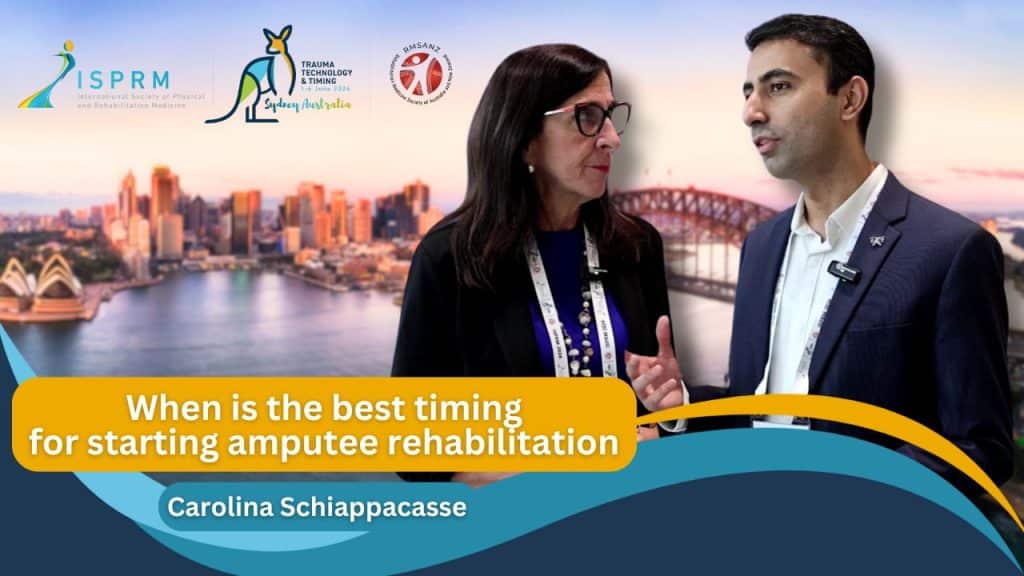When is the best timing for starting amputee rehabilitation? With Carolina Schiappacasse

At the #ISPRM2024 congress in Sydney, Dr. Carolina Schiappacasse, ISPRM Treasurer, delivered a compelling keynote lecture on the best timing for starting amputee rehabilitation. In a follow-up interview with Dr. Muhammad Tawab Khalil, co-chair of the ISPRM Communications Committee, Dr. Schiappacasse shared valuable insights into the importance of early rehabilitation and recent advances in prosthetic technology.
The Best Time for Amputee Rehabilitation
Dr. Schiappacasse emphasized that the optimal time to start rehabilitation is before the amputation takes place. “Definitely the best time is before they are an amputee,” she explained. This early involvement allows the rehabilitation team to participate in critical decisions regarding the level of amputation and the fitting of the patient. If early intervention is not possible, she stressed the importance of starting rehabilitation immediately after surgery, typically by the third day post-operation.
Impact on Quality of Life
Dr. Schiappacasse highlighted the significant impact that timely rehabilitation can have on an amputee’s quality of life. Early rehabilitation allows for a holistic approach, taking into account the patient’s lifestyle, interests, and future goals. “When we start rehabilitation, we sit with the patient and we get a knowledge of all these. And then we start organizing the programs,” she said. This personalized approach ensures that the rehabilitation process is tailored to the individual’s needs and aspirations.
Advances in Prosthetic Technology
Discussing recent advances, Dr. Schiappacasse noted the development of sophisticated bionic prostheses equipped with gyroscopes and sensors that send thousands of messages per second to adapt to changes in terrain and speed. However, she cautioned that technology alone is not enough. “It’s not the technology that makes the amputee walk… it’s his head,” she stated, emphasizing the importance of a comprehensive rehabilitation program that addresses both physical and psychological needs.
Patient-Centered Care
When asked about the initial interaction with patients pre-amputation, Dr. Schiappacasse described a highly personalized approach. “Sometimes patients need just to cry. Sometimes they have 100 questions to ask,” she explained. The rehabilitation team provides emotional support, answers questions, and helps patients navigate the challenging journey ahead, building trust and confidence.
Dr. Schiappacasse’s insights underscore the critical role of early and comprehensive rehabilitation in improving outcomes for amputees. Her lecture and subsequent interview at #ISPRM2024 provided valuable knowledge for professionals in the field, highlighting the importance of patient-centered care and the integration of advanced technologies in rehabilitation.

Responses